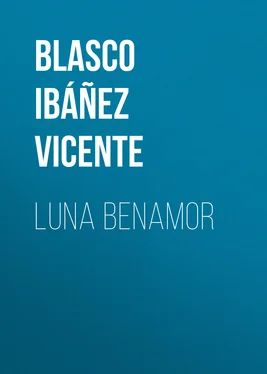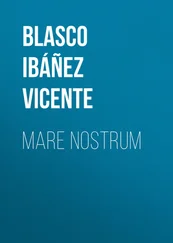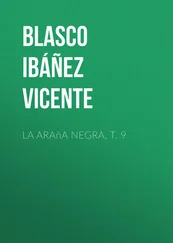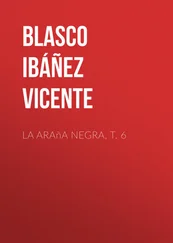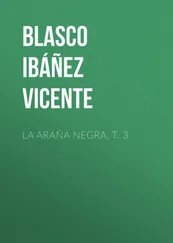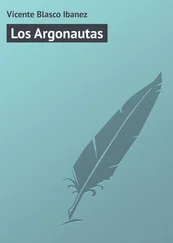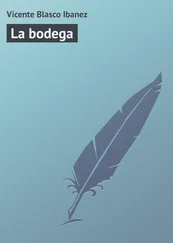Vicente Blasco Ibáñez - Luna Benamor
Здесь есть возможность читать онлайн «Vicente Blasco Ibáñez - Luna Benamor» — ознакомительный отрывок электронной книги совершенно бесплатно, а после прочтения отрывка купить полную версию. В некоторых случаях можно слушать аудио, скачать через торрент в формате fb2 и присутствует краткое содержание. Жанр: foreign_prose, foreign_antique, на английском языке. Описание произведения, (предисловие) а так же отзывы посетителей доступны на портале библиотеки ЛибКат.
- Название:Luna Benamor
- Автор:
- Жанр:
- Год:неизвестен
- ISBN:нет данных
- Рейтинг книги:5 / 5. Голосов: 1
-
Избранное:Добавить в избранное
- Отзывы:
-
Ваша оценка:
- 100
- 1
- 2
- 3
- 4
- 5
Luna Benamor: краткое содержание, описание и аннотация
Предлагаем к чтению аннотацию, описание, краткое содержание или предисловие (зависит от того, что написал сам автор книги «Luna Benamor»). Если вы не нашли необходимую информацию о книге — напишите в комментариях, мы постараемся отыскать её.
Luna Benamor — читать онлайн ознакомительный отрывок
Ниже представлен текст книги, разбитый по страницам. Система сохранения места последней прочитанной страницы, позволяет с удобством читать онлайн бесплатно книгу «Luna Benamor», без необходимости каждый раз заново искать на чём Вы остановились. Поставьте закладку, и сможете в любой момент перейти на страницу, на которой закончили чтение.
Интервал:
Закладка:
Vicente Blasco Ibáñez
Luna Benamor
LUNA BENAMOR
I
LUIS AGUIRRE had been living in Gibraltar for about a month. He had arrived with the intention of sailing at once upon a vessel bound for Oceanica, where he was to assume his post as a consul to Australia. It was the first important voyage of his diplomatic career. Up to that time he had served in Madrid, in the offices of the Ministry, or in various consulates of southern France, elegant summery places where for half the year life was a continuous holiday. The son of a family that had been dedicated to diplomacy by tradition, he enjoyed the protection of influential persons. His parents were dead, but he was helped by his relatives and the prestige of a name that for a century had figured in the archives of the nation. Consul at the age of twenty-five, he was about to set sail with the illusions of a student who goes out into the world for the first time, feeling that all previous trips have been insignificant.
Gibraltar, incongruous and exotic, a mixture of races and languages, was to him the first sign of the far-off world in quest of which he was journeying. He doubted, in his first surprise, if this rocky land jutting into the open sea and under a foreign flag, could be a part of his native peninsula. When he gazed out from the sides of the cliff across the vast blue bay with its rose-colored mountains dotted by the bright settlements of La Línea, San Roque and Algeciras,—the cheery whiteness of Andalusian towns,—he felt convinced that he was still in Spain. But great difference distinguished the human groups camped upon the edge of this horseshoe of earth that embraced the bay. From the headland of Tarifa to the gates of Gibraltar, a monotonous unity of race; the happy warbling of the Andalusian dialect; the broad-brimmed hat; the mantilla about the women's bosoms and the glistening hair adorned with flowers. On the huge mountain topped by the British flag and enclosing the oriental part of the bay, a seething cauldron of races, a confusion of tongues, a carnival of costume: Hindus, Mussulmen, English, Hebrews, Spanish smugglers, soldiers in red coats, sailors from every nation, living within the narrow limits of the fortifications, subjected to military discipline, beholding the gates of the cosmopolitan sheepfold open with the signal at sunrise and close at the booming of the sunset gun. And as the frame of this picture, vibrant with its mingling of color and movement, a range of peaks, the highlands of Africa, the Moroccan mountains, stretched across the distant horizon, on the opposite shore of the strait; here is the most crowded of the great marine boulevards, over whose blue highway travel incessantly the heavily laden ships of all nationalities and of all flags; black transatlantic steamers that plow the main in search of the seaports of the poetical Orient, or cut through the Suez Canal and are lost in the isle-dotted immensities of the Pacific.
To Aguirre, Gibraltar was a fragment of the distant Orient coming forward to meet him; an Asiatic port wrenched from its continent and dragged through the waves to run aground on the coast of Europe, as a sample of life in remote countries.
He was stopping at a hotel on Royal Street, a thoroughfare that winds about the mountain,—that vertebral column of the city to which lead, like thin threads, the smaller streets in ascending or descending slope. Every morning he was startled from his sleep by the noise of the sunrise gun,—a dry, harsh discharge from a modern piece, without the reverberating echo of the old cannon. The walls trembled, the floors shook, window panes and curtains palpitated, and a few moments later a noise was heard in the street, growing gradually louder; it was the sound of a hurrying flock, the dragging of thousands of feet, the buzz of conversations carried on in a low voice along the closed and silent buildings. It was the Spanish day laborers arriving from La Línea ready for week at the arsenal; the farmhands from San Roque and Algeciras who supplied the people of Gibraltar with vegetables and fruits.
It was still dark. On the coast of Spain perhaps the sky was blue and the horizon was beginning to be colored by the rain of gold from the glorious birth of the sun. In Gibraltar the sea fogs condensed around the heights of the cliff, forming a sort of blackish umbrella that covered the city, holding it in a damp penumbra, wetting the streets and the roofs with impalpable rain. The inhabitants despaired beneath this persistent mist, wrapped about the mountain tops like a mourning hat. It seemed like the spirit of Old England that had flown across the seas to watch over its conquest; a strip of London fog that had insolently taken up its place before the warm coasts of Africa, the very home of the sun.
The morning advanced, and the glorious, unobstructed light of the bay, yellow blue, at last succeeded in penetrating the settlement of Gibraltar, descending into the very depths of its narrow streets, dissolving the fog that had settled upon the trees of the Alameda and the foliage of the pines that extended along the coast so as to mask the fortifications at the top, drawing forth from the shadows the gray masses of the cruisers anchored in the harbor and the black bulk of the cannon that formed the shore batteries, filtering into the lugubrious embrasures pierced through the cliff, cavernous mouths revealing the mysterious defences that had been wrought with mole-like industry in the heart of the rock.
When Aguirre went down to the entrance of the hotel, after having given up all attempt to sleep during the commotion in the street, the thoroughfare was already in the throes of its regular commercial hurly-burly, a multitude of people, the inhabitants of the entire town plus the crews and the passengers of the vessels anchored in the harbor. Aguirre plunged into the bustle of this cosmopolitan population, walking from the section of the waterfront to the palace of the governor. He had become an Englishman, as he smilingly asserted. With the innate ability of the Spaniard to adapt himself to the customs of all foreign countries he imitated the manner of the English inhabitants of Gibraltar. He had bought himself a pipe, wore a traveling cap, turned up trousers and a swagger stick. The day on which he arrived, even before night-fall, they already knew throughout Gibraltar who he was and whither he was bound. Two days later the shopkeepers greeted him from the doors of their shops, and the idlers, gathered on the narrow square before the Commercial Exchange, glanced at him with those affable looks that greet a stranger in a small city where nobody keeps his secret.
He walked along in the middle of the street, avoiding the light, canvas-topped carriages. The tobacco stores flaunted many-colored signs with designs that served as the trade-mark of their products. In the show windows the packages of tobacco were heaped up like so many bricks, and monstrous unsmokable cigars, wrapped in tinfoil as if they were sausages, glitteringly displayed their absurd size; through the doors of the Hebrew shops, free of any decoration, could be seen the shelves laden with rolls of silk and velvet, or the rich silk laces hanging from the ceiling. The Hindu bazaars overflowed into the street with their exotic, polychrome rarities: clothes embroidered with terror-inspiring divinities and chimerical animals; carpets in which the lotus-flower was adapted to the strangest designs; kimonos of delicate, indefinable tints; porcelain jars with monsters that belched fire; amber-colored shawls, as delicate as woven sighs; and in the small windows that had been converted into display cases, all the trinkets of the extreme Orient, in silver, ivory or ebony; black elephants with white tusks, heavy-paunched Buddhas, filigree jewels, mysterious amulets, daggers engraved from hilt to point. Alternating with these establishments of a free port that lives upon contraband, there were confectioneries owned by Jews, cafés and more cafés, some of the Spanish type with round, marble-topped tables, the clicking of dominoes, smoke-laden atmosphere and high-pitched discussions accompanied by vehement gestures; others resembling more the English bar, crowded with motionless, silent customers, swallowing one cocktail after another, without any other sign of emotion than a growing redness of the nose.
Читать дальшеИнтервал:
Закладка:
Похожие книги на «Luna Benamor»
Представляем Вашему вниманию похожие книги на «Luna Benamor» списком для выбора. Мы отобрали схожую по названию и смыслу литературу в надежде предоставить читателям больше вариантов отыскать новые, интересные, ещё непрочитанные произведения.
Обсуждение, отзывы о книге «Luna Benamor» и просто собственные мнения читателей. Оставьте ваши комментарии, напишите, что Вы думаете о произведении, его смысле или главных героях. Укажите что конкретно понравилось, а что нет, и почему Вы так считаете.
